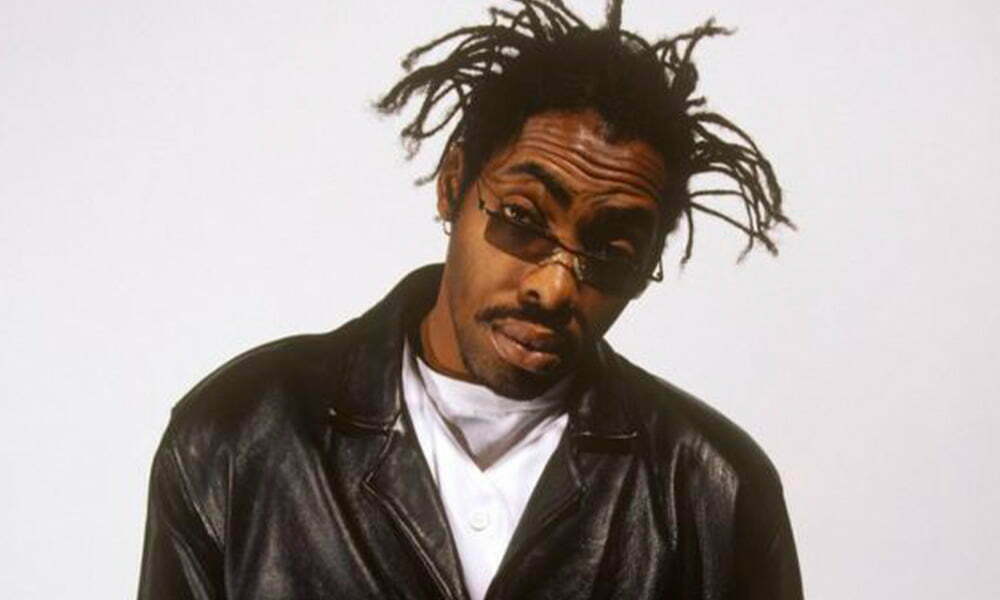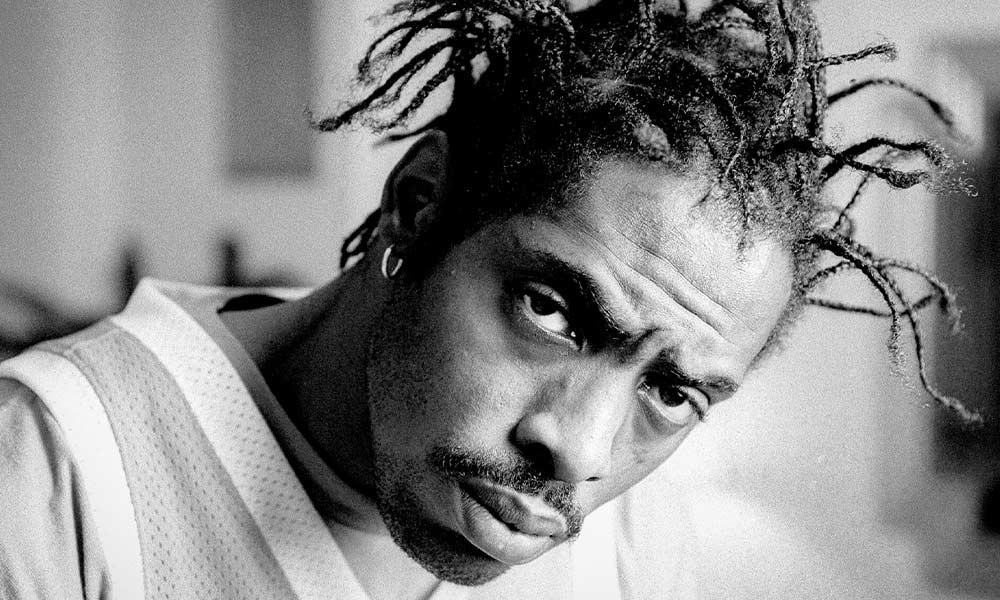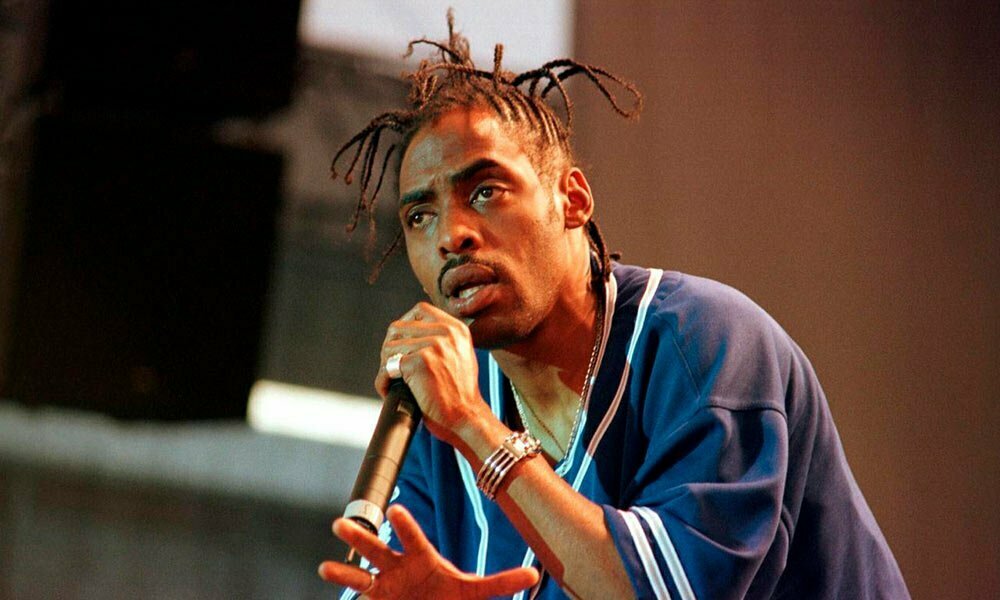The Influence of Coolio’s Gangsta’s Paradise on Hip Hop
Gangsta’s Paradise, the iconic rap song by Coolio released in 1995, is considered one of the cornerstone pieces in the history of hip hop. With its immersive beat, profound lyrics, and Coolio’s intense performance, Gangsta’s Paradise achieved unprecedented success at the time, becoming a worldwide hit and propelling rap and hip hop to new levels of popularity. The song also had a significant impact on popular culture by addressing social and political issues and blending rap with other musical genres like soul and funk. In this article, we will explore the lasting influence of Gangsta’s Paradise on hip hop and its role in the evolution of the genre.
The Origins of Gangsta’s Paradise and Its Impact on Hip Hop
Gangsta’s Paradise is one of the most iconic rap songs of the 1990s hip hop, and it is regarded as one of the finest musical productions of its time. The song was released in 1995 by American rapper Coolio as part of the soundtrack for the film “Dangerous Minds.” The track was an instant success, reaching number one on various music charts worldwide.
The origins of Gangsta’s Paradise can be traced back to Stevie Wonder’s song “Pastime Paradise,” released in 1976. Coolio borrowed the melody from this song to create the musical foundation of his track but gave it a completely different twist. Gangsta’s Paradise became a protest song that criticized violence and life in the marginalized neighborhoods of the United States, focusing on the need for social change.
The song also featured an unusual collaboration at the time, as it included the soul singer L.V. on the chorus. The lyrics of the song and its message were particularly powerful at a time when violence in the marginalized neighborhoods of the United States was at its peak, and hip hop had become a popular medium for expressing frustrations and fighting against oppression.
Gangsta’s Paradise also had a significant impact on the popular culture of the 1990s and became an emblematic song that transcended the boundaries of the hip hop genre. Its influence can be seen in the music, fashion, and film of the time, and it is still regarded today as one of the greatest hip hop songs and a significant milestone in music history.
The Collaboration between Coolio and Music Producer Doug Rasheed in Gangsta’s Paradise
The song “Gangsta’s Paradise” by Coolio is known for its distinctive lyrics and sound, but also for the collaboration between the rapper and music producer Doug Rasheed. Rasheed, who had previously worked with artists like Eric B. & Rakim and Kool Moe Dee, was hired to produce Coolio’s album “Gangsta’s Paradise” and worked closely with him to create the sound that would become an international success. The combination of Coolio’s vocal prowess and Rasheed’s innovative production resulted in an album that became a cultural phenomenon and a milestone in hip hop history.
The Influence of Stevie Wonder’s Song “Pastime Paradise” in the Creation of Gangsta’s Paradise
Coolio’s Gangsta’s Paradise is known for its distinctive piano riff and being one of the biggest hits of the 1990s. But what many people may not know is that the song was heavily influenced by another musical work: Stevie Wonder’s “Pastime Paradise.” In an interview, Coolio explained that Stevie Wonder’s song had been one of his favorites for a long time, and he wanted to create a version of it that reflected the harsh reality of life on the streets. With the help of music producer Doug Rasheed, Coolio managed to sample Stevie Wonder’s song and use it as the foundation for his own song. The combination of the orchestral arrangements from “Pastime Paradise” with Coolio’s hip hop rhythms and lyrics reflecting the harsh life in poor neighborhoods resulted in a blend that resonated with the audience and helped establish Gangsta’s Paradise as one of the most important hip hop songs of the 90s.
The Creative Process behind the Lyrics and Production of Gangsta’s Paradise
Gangsta’s Paradise, released in 1995, is a song that has become a hip hop classic and a milestone in Coolio’s career. The track originated from a collaboration between the rapper and music producer Doug Rasheed, who aimed to create a song that reflected the reality of life on the streets.
To achieve this, Rasheed provided Coolio with a musical track based on a sample from Stevie Wonder’s song “Pastime Paradise,” which the rapper then worked on to create lyrics that spoke about life in marginalized neighborhoods and the struggle against poverty and violence. The song became an anthem for the African American community and a social commentary on the issues affecting youth in the poorest neighborhoods of the United States.
The lyrics of Gangsta’s Paradise, written by Coolio, are also known for their use of assonance rhyme, which became one of the song’s distinctive features. Additionally, the music production of the song, helmed by Rasheed, was groundbreaking for its time as it combined elements of classical music with the sound of hip hop.
The Social and Political Message of Gangsta’s Paradise and Its Relevance in Popular Culture
Gangsta’s Paradise, Coolio’s successful single, stood out not only for its distinctive sound but also for its social and political message. The song speaks about life in marginalized neighborhoods, poverty, and the violence experienced there. The main theme of the lyrics is the hopelessness of people living in these communities, the lack of opportunities, and the daily struggle to survive in a hostile environment.
The lyrics of Gangsta’s Paradise call for reflection on the social and economic situation of marginalized communities. Coolio highlights the need to change these realities and addresses issues such as racism, police brutality, and lack of education. The message of the song resonated strongly with listeners and became an anthem for many who experienced similar circumstances.
The song also generated controversy as some critics accused it of glorifying violence and the gangsta lifestyle. However, the majority of the song’s followers recognized the social message it conveyed and the importance of drawing attention to issues that are often overlooked by society.
Gangsta’s Paradise became a key piece in popular culture and in the history of hip hop, thanks to its message and its impact on social consciousness. The song was a call to action for many, and its message remains relevant today.
The Representation of Life in Marginalized Communities and Social Critique in Gangsta’s Paradise
Gangsta’s Paradise is known for its raw representation of life in marginalized communities and its social critique of violence, racism, and economic inequality. Coolio, who grew up in the projects of Los Angeles, wrote the lyrics of the song with the intention of reflecting his own experience and that of those living in similar circumstances. The song offers a glimpse into everyday life in poor and violent neighborhoods, where poverty and lack of opportunities can lead to crime and violence.
Gangsta’s Paradise also focuses on the tense relationship between the police and the African American community, criticizing police brutality and racial discrimination in the criminal justice system. The song has become an anthem for those fighting against social injustice and has been used on various occasions in the fight against police brutality and racial discrimination.
The message of Gangsta’s Paradise has resonated with many people around the world, helping the song become a hip hop classic and a symbol of the struggle for equality and justice. The lyrics and message of the song have influenced other hip hop artists and inspired many to speak out about similar issues in their own music.
The Society’s Response to the Themes Addressed in Gangsta’s Paradise, Including Violence, Poverty, and Discrimination
Coolio’s Gangsta’s Paradise generated significant controversy upon its release due to the social and political themes it addressed. The song focused on life in marginalized communities and social critique of violence, poverty, and discrimination. Many listeners found the lyrics to be poignant and a call to action to address these issues in society. However, others argued that the song glorified violence and promoted a negative stereotype of life in marginalized communities. The song also faced criticism from some politicians and media commentators for its explicit language and violent content.
Despite the controversy, Gangsta’s Paradise had a lasting impact on popular culture and became a commercial success worldwide. The song was featured on the soundtrack of the film “Dangerous Minds,” and its music video received a significant number of plays on the then-emerging MTV. The song also won several awards, including Grammy and MTV Video Music Awards.
Ultimately, the social and political message of Gangsta’s Paradise remains relevant today. The song continues to serve as a powerful reminder of the need to address poverty, violence, and discrimination in our communities. Furthermore, the song has inspired many other hip hop artists to address similar issues in their music and has contributed to the genre’s evolution into a more socially conscious form.
The Influence of Gangsta’s Paradise on Political and Social Activism in the Hip Hop Community and Beyond
Coolio’s Gangsta’s Paradise was not only a commercial and critical success in the music industry but also had an impact on political and social activism within the hip hop community and beyond. The song touched on important issues such as violence, poverty, and discrimination and through its message, brought attention to the reality of life in marginalized communities.
Gangsta’s Paradise was released in 1995, at a time when the hip hop community was increasingly concerned about rising street violence and racial discrimination in society. The song became an anthem for many young people who identified with the struggle against oppression and injustice.
Furthermore, Gangsta’s Paradise also had an impact on popular culture and the perception of hip hop music in society at large. The song showcased that rap was not just about catchy beats and simple lyrics, but could also be a powerful form of expressing social and political realities of the time.
The Influence of Gangsta’s Paradise on the Evolution of Hip Hop Sound and Popular Music
Gangsta’s Paradise, the iconic song by rapper Coolio, not only had an impact on popular culture but also helped to change the sound of hip hop and popular music in general. Since its release in 1995, the song has been sampled and reinterpreted numerous times, and has influenced the creation of sub-genres like gangsta rap and alternative hip hop.
Gangsta’s Paradise stood out for its dark and somber sound, with a sample from Stevie Wonder’s song “Pastime Paradise,” which gave it a melancholic and nostalgic tone. The musical production by Doug Rasheed, the producer of the song, helped create a unique and distinctive sound that has been emulated by other producers and hip hop artists ever since.
Additionally, Gangsta’s Paradise was a turning point in the evolution of lyrical content in hip hop. The song presented a harsh and realistic social critique of life in marginalized communities and street violence, which became a key feature of gangsta rap in the following years. The song also addresses themes of hopelessness, poverty, and inequality, making it still relevant today.
Gangsta’s Paradise also had an impact on popular music beyond hip hop. The song topped charts worldwide, reaching number one in numerous countries and receiving an Academy Award nomination for Best Original Song for its inclusion in the film “Dangerous Minds.” The song has been covered and sampled on several occasions and has inspired a generation of artists to explore deeper and darker themes in their music.
The Fusion of Hip Hop with Other Musical Genres in Gangsta’s Paradise, such as Soul and Funk
Gangsta’s Paradise not only had an impact on the lyrics and message of the song but also had a significant influence on the production and sound of hip hop. One of the distinctive features of Gangsta’s Paradise is its fusion of elements from hip hop with sounds from soul and funk. This fusion is partly due to the inclusion of Stevie Wonder’s song “Pastime Paradise” as a sample in the song’s production.
The producer Doug Rasheed used a loop of piano and strings from Stevie Wonder’s song as the foundation for the production of Gangsta’s Paradise, adding layers of drums, bass, and other hip hop elements to create a powerful and evocative track. The inclusion of the sample from “Pastime Paradise” not only gave the song a distinctive and emotional sound but also highlighted the ability of hip hop producers to create something new from existing elements.
The fusion of hip hop with other musical genres in Gangsta’s Paradise demonstrated the versatility of the genre and its ability to adapt and incorporate new sounds and styles. This experimental approach to production and sound in the song also influenced the evolution of hip hop and popular music in general, opening new possibilities and creative paths for future artists.
The Impact of Gangsta’s Paradise on Music Production and the Use of Samples in Hip Hop
Gangsta’s Paradise by Coolio was not only a commercial and critical success but also had a significant impact on hip hop music production and the creative use of samples. The song itself uses a sample from Stevie Wonder’s song “Pastime Paradise,” which became an example of how the use of samples can transform and revitalize a song.
The use of samples in hip hop had been a common practice since its inception, but Gangsta’s Paradise took this technique to the next level by incorporating the sample as an integral part of the song itself, not just as a decorative element. The song demonstrates how samples can be used to create a completely new sound while also honoring the artists and genres that originated them.
The success of Gangsta’s Paradise propelled the popularity of this technique and its creative use in music production. Additionally, the song also influenced the way hip hop producers and artists collaborated, showcasing the importance of working together in creating an innovative and distinctive sound.
The Influence of Gangsta’s Paradise on the Emergence of New Hip Hop Subgenres, such as Gangsta Rap and Alternative Hip Hop
Gangsta’s Paradise by Coolio is one of the most influential songs in the history of hip hop, and its impact has been felt in a variety of ways throughout the genre. One of the ways it has been most influential is in the creation of new hip hop subgenres. Gangsta’s Paradise is considered a song of gangsta rap, a subgenre of hip hop characterized by its focus on the realities of life in marginalized urban communities. The song has also influenced alternative hip hop, a subgenre that often focuses on musical and lyrical experimentation and often deviates from the conventions of traditional hip hop.
The sound of Gangsta’s Paradise, with its blend of soul, funk, and hip hop elements, has also influenced hip hop music production in general. The song was produced by Doug Rasheed, who used samples from Stevie Wonder’s song “Pastime Paradise” and Coolio’s song “Fantastic Voyage” to create the distinctive sound of the song. The use of samples has become a common practice in modern hip hop, and the influence of Gangsta’s Paradise on this technique is evident.
FAQs:
Who is Coolio and why is his song “Gangsta’s Paradise” important?
Coolio is an American rapper and actor who rose to fame with his song “Gangsta’s Paradise” in 1995. The song became an instant hit, reaching number 1 on charts worldwide and winning several major awards, including a Grammy.
What influences can be found in “Gangsta’s Paradise”?
Coolio’s song “Gangsta’s Paradise” is influenced by Stevie Wonder’s song “Pastime Paradise,” which appears on his album “Songs in the Key of Life.” Coolio used the musical arrangement of Stevie Wonder’s song as the basis for “Gangsta’s Paradise” and wrote new lyrics to address themes related to life in marginalized communities.
What is the social and political message behind “Gangsta’s Paradise”?
“Gangsta’s Paradise” addresses themes such as violence, poverty, and discrimination in marginalized communities. The song criticizes the lack of opportunities for people living in these communities and suggests that society as a whole is responsible for creating the conditions that lead to these issues.
How did “Gangsta’s Paradise” influence popular culture?
“Gangsta’s Paradise” was a commercial success and became an anthem for a generation of young people who identified with the song’s message. The song also inspired the creation of new hip hop subgenres, such as gangsta rap and alternative hip hop.
How did “Gangsta’s Paradise” impact hip hop music?
“Gangsta’s Paradise” had a significant impact on hip hop music and helped bring the genre to a wider audience. The song also influenced the way hip hop was produced and recorded, and opened the door to new forms of fusion with other musical genres.
CONCLUSION:
The 1995 hit, Gangsta’s Paradise by Coolio, is a brilliant iconic song that has left a profound mark on the history of hip hop and pop culture as a whole. Even today, in 2023, we still hear it on social media, commercials, and movies. From its origin in the collaboration between Coolio and Doug Rasheed, to its impact on social and political criticism and genre fusion, Gangsta’s Paradise has influenced many aspects of contemporary culture. Its portrayal of marginalized communities and critique of violence, poverty, and discrimination continues to resonate with audiences and has inspired many artists to use music as a tool for social change. The influence of Gangsta’s Paradise on hip hop has been undeniable, from its impact on music production and the use of samples, to its role in the emergence of new subgenres like gangsta rap and alternative hip hop. In summary, Gangsta’s Paradise remains a timeless example of how music can inspire change and social awareness in today’s society.



